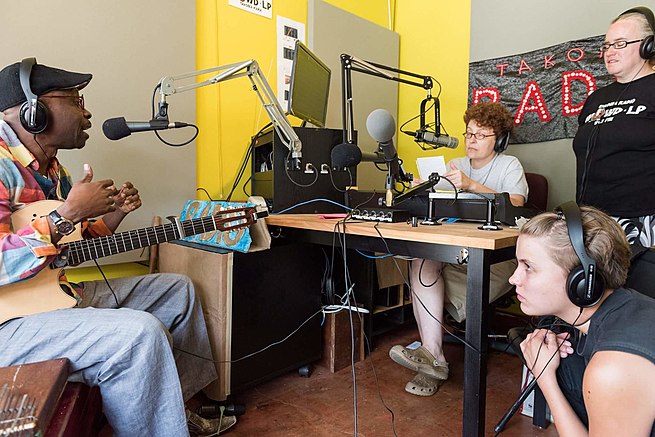
Main Difference
The main difference between Interview and Inquiry is that the Interview is a structured series of questions and answers and Inquiry is a process that has the aim of augmenting knowledge, resolving doubt, or solving a problem
-
Interview
An interview is a conversation where questions are asked and answers are given. In common parlance, the word “interview” refers to a one-on-one conversation between an interviewer and an interviewee. The interviewer asks questions to which the interviewee responds, usually so information may be transferred from interviewee to interviewer (and any other audience of the interview). Sometimes, information can be transferred in both directions. It is a communication, unlike a speech, which produces a one-way flow of information.
Interviews usually take place face-to-face and in person, although modern communications technologies such as the Internet have enabled conversations to happen in which parties are separated geographically, such as with videoconferencing software, and telephone interviews can happen without visual contact. Interviews almost always involve spoken conversation between two or more parties, although in some instances a “conversation” can happen between two persons who type questions and answers back and forth.
Interviews can range from Unstructured interview or free-wheeling and open-ended conversations in which there is no predetermined plan with prearranged questions, to highly structured conversations in which specific questions occur in a specified order. They can follow diverse formats; for example, in a ladder interview, a respondent’s answers typically guide subsequent interviews, with the object being to explore a respondent’s subconscious motives. Typically the interviewer has some way of recording the information that is gleaned from the interviewee, often by writing with a pencil and paper, sometimes transcribing with a video or audio recorder, depending on the context and extent of information and the length of the interview. Interviews have a duration in time, in the sense that the interview has a beginning and an ending.
The traditional two-person interview format, sometimes called a one-on-one interview, permits direct questions and followups, which enables an interviewer to better gauge the accuracy of responses. It is a flexible arrangement in the sense that subsequent questions can be tailored to clarify earlier answers. Further, it eliminates any possible distortion by having third parties present.
Face to face interviewing makes it easier for people to interact and form a connection, and it helps both the potential employer and potential hire who they might be interacting with. Further, face to face interview sessions can be more enjoyable.
-
Inquiry
An inquiry is any process that has the aim of augmenting knowledge, resolving doubt, or solving a problem. A theory of inquiry is an account of the various types of inquiry and a treatment of the ways that each type of inquiry achieves its aim.
-
Interview (noun)
An official face-to-face meeting of monarchs or other important figures. 16th-19th c.
-
Interview (noun)
Any face-to-face meeting, especially of an official nature. from 17th c.
-
Interview (noun)
A conversation in person (or, by extension, over the telephone, Internet etc.) between a journalist and someone whose opinion or statements he or she wishes to record for publication, broadcast etc. from 19th c.
“The reporter gave the witness an interview.”
-
Interview (noun)
A formal meeting, in person, for the assessment of a candidate or applicant. from 20th c.
“It was a dreadful interview; I have no hope of getting the job.”
-
Interview (noun)
An audition.
-
Interview (noun)
A police interrogation of a suspect or party in an investigation. from 20th c.
-
Interview (verb)
To ask questions of (somebody); to have an interview.
“He interviewed the witness.”
“The witness was interviewed.”
-
Interview (verb)
To be interviewed; to attend an interview.
-
Inquiry (noun)
The act of inquiring; a seeking of information by asking questions; interrogation; a question or questioning.
-
Inquiry (noun)
Search for truth, information, or knowledge; examination of facts or principles; research; investigation
“Scientific inquiry”
-
Interview (noun)
a meeting of people face to face, especially for consultation.
-
Interview (noun)
a conversation between a journalist or radio or television presenter and a person of public interest, used as the basis of a broadcast or publication
“a half-hour interview with the prime minister”
-
Interview (noun)
an oral examination of an applicant for a job, college place, etc.
“I am pleased to advise you that you have been selected for interview”
-
Interview (noun)
a session of formal questioning of a person by the police.
-
Interview (verb)
hold an interview with (someone)
“she was interviewed by a reporter from the Daily News”
“police are keen to interview two men seen nearby”
-
Interview (verb)
perform (well or badly) at an interview.
